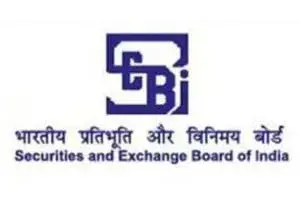By Lucy Rana and Rupin Chopra
INTRODUCTIONS:
On June 18, 2021, the Security Exchange Board of India (SEBI) has passed a circular for providing norms for investment and disclosure by Mutual Funds in Derivatives. This circular is with reference to “Review of norms for investment and disclosure by Mutual Funds in Derivatives” passed by SEBI on August 18, 2010 for prescribing the guidelines for participation of mutual fund schemes in Interest Rate Swaps (IRS)[1]. After receiving feedback from various stakeholders and industry participants, SEBI through this circular has modified the clause mentioning the guidelines Interest Rate Swaps for mutual fund schemes in Derivatives. SEBI, in order to protect the interests of investors in securities and promotion of development in security markets has exercised its powers as conferred under Section 11(1) of SEBI Act, 1992 read with Regulation 77 of SEBI (Mutual Funds) Regulation, 1996.
WHAT ARE INTEREST RATE SWAPS?
As per the Reserve Bank of India[2], “An Interest Rate Swap is a financial contract between two parties exchanging or swapping a stream of interest payments for a notional principal amount on multiple occasions during a specified period. Such contracts generally involve exchange of a fixed to floating or floating to floating rates of interest. Accordingly, on each payment date – that occurs during the swap period – cash payments based on fixed/ floating and floating rates, are made by the parties to one another.” It can be summarized as an over-the-counter derivative having agreement between two counterparties for exchange of one stream of future interest payments for another, applied on a notional principal amount, over a specified time period.
For further clarity, as per Section 45U of the Reserve Bank of India Act, 1934, “Derivative means an instrument, to be settled at a future date, whose value is derived from change in interest rate, foreign exchange rate, credit rating or credit index, price of securities, or a combination of more than one of them and includes interest rate swaps.” Different derivative instruments are regulated and permitted by regulators like SEBI, RBI, Forward Markets Commission (FMC).
GUIDELINES:
As per the circular, new norms prescribed to be modified in circular dated August 18, 2010 are:
- Mutual Funds may enter into plain vanilla Interest Rate Swaps (IRS) for hedging purposes. The value of the notional principal in such cases must not exceed the value of respective existing assets being hedged by the scheme.
- In case of participation in IRS is through over-the-counter transactions, the counter party has to be entity recognized as a market maker by RBI and exposure to a single counterparty in such transactions should not exceed 10% of the net assets of the scheme. However, if mutual funds are transacting in IRS through an electronic trading platform offered by the Clearing Corporation of India Ltd. (CCIL) and CCIL is the central counterparty for such transactions guaranteeing settlement, the single counterparty limit of 10% shall not be applicable.
ANALYSIS:
The new guidelines set by SEBI for investment and disclosure by Mutual Funds in Derivatives has removed the 10% prescribed cap on IRS transactions through CCIL. However, the circular has still made transactions on single counterparty through market makers under the prescribed cap. Since, there is a risk involved in execution of such transactions through market markers by the other party, the 10% cap set by SEBI reduces the extent of risk in event of default. As CCIL transactions carry no such risk (the counterparty being CCIL in such transactions) there is no particular cap set.
CONCLUSION:
Hence, SEBI conferring its power for protection of investors and regulations for markets, has modified the IRS rules for prescribing the applicable cap on single counterparty transactions through approved market makers and removing the cap of 10% on CCIL transactions.
[1] https://www.sebi.gov.in/legal/circulars/aug-2010/review-of-norms-for-investment-and-disclosure-by-mutual-funds-in-derivatives_380.html
[2] https://www.rbi.org.in/Scripts/bs_viewcontent.aspx?Id=457


